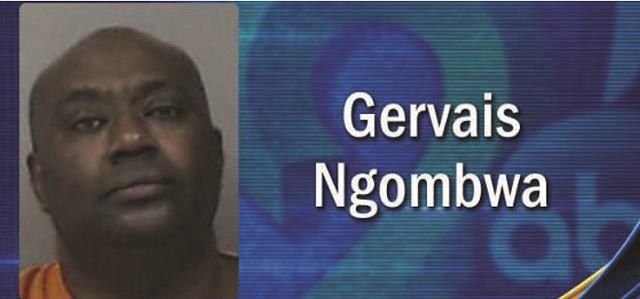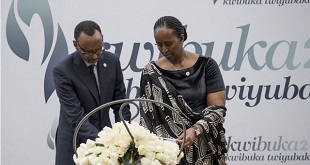
U.S court bases on Gacaca court findings in Rwanda to end long-running court saga
A federal court in Cedar Rapids, Iowa, USA, has sentenced and concluded that a Rwandan refugee living in Cedar Rapids, “actively participated in the Rwandan genocide.”
Court officials say Gervais Ngombwa, 56, was a leader of the MDR-Power, an anti-Tutsi political party, who according to witnesses, personally killed several Tutsi, and led the effort to kill Tutsi seeking refuge in churches and a priest’s compound.
At the time of the genocide against the Tutsi in 1994 in Rwanda, Ngonbwa was a powerful businessman and was well known in all of Bugesera.
So many witnesses were able to describe his role in, among several crimes, spearheading bloody attacks on the former Ntarama Catholic Church. Up to 5,000 people were killed here and the church is today a Genocide memorial site.
Several witnesses described how Ngonbwa participated in killings Nyamata town, where he was well known, and its surroundings.
To convict him, the U.S court relied upon Ngombwa’s prior genocide convictions in the local “Gacaca” courts in Rwanda.
According to Chief District Court Judge Linda R. Reade, Ngombwa was found guilty of falsely claiming to be the brother of a moderate Hutu leader, falsely claiming to be related to other adult refugees, failing to disclose the names of numerous relatives living in Rwanda, falsely claiming certain children were his own biological children with his wife Antoinette Mukakabanda, falsely claiming he had not been married to anyone other than Mukakabanda, falsely denying he had relatives in the military, alsely claiming he, his wife, and his mother-in-law had been beaten by government forces in 1990 before the genocide began.
Ngombwa also intentionally set fire to his home in Cedar Rapids and submitted a false insurance claim in 2013.
The ruling stems from a hearing on September 22 and 23, 2016, when government officials presented testimony from multiple witnesses and agents from the Department of Homeland Security.
A large portion of the hearing discussed Gervais Ngombwa’s conduct in Rwanda in the 1990s.
Evidence presented revealed that Ngombwa was charged and convicted in Gacaca courts in Rwanda for his involvement in the killing of thousands of people from the Tutsi ethnic group.
That investigation is connected to a jury trial in January 2016. Officials say Ngombwa was guilty of procuring or attempting to procure naturalisation or citizenship, one count of procuring citizenship to which he was not entitled, one count of conspiracy to unlawfully procure citizenship, and one count of making a materially false statement to agents of the Department of Homeland Security.
The Rwanda government has for some time been calling on the U.S government to extradite Ngombwa. He has, however, been a naturalised American citizen since 2004.
Three separate Gacaca courts tried him in absentia and sentences him to sentences varying from 15-year imprisonment to life in prison.
The Gacaca courts were in Maranyundo, Kayumba and Nyamata in Bugesera District where Ngombwa committed the genocide crimes.
He was last year convicted of falsifying documents to process U.S citizenship following a complaint from the Rwandan government.
Rwanda argued that Ngombwa was convicted of four charges of genocide, extermination, crimes against humanity and murder as a crime against humanity.
The U.S courts also last year annulled Ngondwa’s citizenship after he was found guilty of illegally acquiring nationality. His documents, including certificate of naturalisation, passports, voter cards and other documents, were repossessed after the northern district of Iowa’s Chief Judge, Linda Reade, ruled that his case warranted mandatory denaturalization.
In January, Ngombwa was found guilty by the US court on four counts, including unlawfully procuring or attempting to procure naturalisation or citizenship; procuring citizenship to which he was not entitled; conspiracy to unlawfully procure citizenship and making a materially false statement to agents of the Department of Homeland Security.
According to a local newspaper, The Gazette Ngombwa misled authorities about the identity of his brother, saying he was a prime minister who ended up in exile, a relationship that would make it difficult for him to return to Rwanda.
Since he was convicted in absentia by the now closed Gacaca semi-traditional judicial system, the suspect has the right to seek retrial in a conventional court to be able to defend himself.
****
editor@independent.co.ug
 The Independent Uganda: You get the Truth we Pay the Price
The Independent Uganda: You get the Truth we Pay the Price



